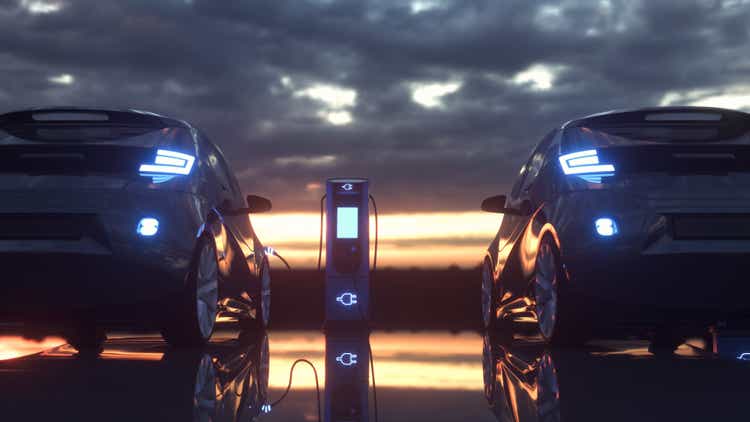Дмитрий Ларичев
Is it possible to be bullish on the potential for electric vehicles to be widely adopted in the long term while also being constructive on internal combustion vehicles in the near term?
Morgan Stanley thinks the answer is yes. Analyst Adam Jonas and team maintain the stock market is undervaluing ICE-derived businesses of legacy car companies and suppliers at the same EV-related businesses across the automobile industry are still being valued on potential that may not ever be achieved across the board.
Morgan Stanley still has a core belief that significant electric vehicle adoption will be driven in the long term by a mixture of economic drivers, environmental forces, regulatory drivers and consumer choice. However, the firm also thinks the reality is that the world may not be able to decouple from ICE vehicles in the next three to five years as was expected just a year ago. The EV revolution is said to have stalled due to a mix of geopolitical, consumer affordability, inflation, China dependence and valuation issues that have all cropped up in 2022.
Jonas and team pointed to the recent comments from BMW (OTCPK:BMWYY), Renault (OTCPK:RNSDF) and Stellantis (STLA) at the Paris Motor Show that openly questioned the 2035 ICE phase-out in Europe. In particular, they highlighted continued BEV cost disadvantages and cheaper China competition. A very dramatic point was made when Stellantis (STLA) CEO Carlos Tavares stated that forcing a transition to BEVs would make car ownership unaffordable for many, and could even create serious social problems
In the U.S., General Motors (GM) pushed its EV sales target out six months and one of Ford’s (F) big autonomous vehicle bets, Argo AI, is closing up shop. Both GM and Ford are moving forward with their all-electric initiatives, but at a slower pace than anticipated at the beginning of the year when the Green Tidal Wave thesis was red-hot.
How can investors slowplay the electric vehicle revolution? Morgan Stanley reiterated that Tesla (TSLA) is still the first draft pick for a portfolio looking for exposure to EVs and the onshoring trend of manufacturing. But in the meantime, the ICE-derived businesses of GM, Ford are still seen called attractive as standalone auto plays, while suppliers American Axle (AXL) and BorgWarner (BWA) are seen benefiting if ICE vehicles account for a higher mix of vehicles than anticipated for the next few years.
That leaves some open-ended questions on a whole host of EV-related stocks like Fisker (FSR), Rivian Automotive (RIVN), Lucid Group (LCID), Canoo (GOEV), Blink Charging (BLNK), ChargePoint Holdings (CHPT), and Arrival (ARVL) if the EV adoption timeline is pushed out and higher interest rates continue to impact valuations and balance sheets.
If the “ICE is Nice” trade plays out like Morgan Stanley sees it, investors may have a few more years left to bet on some legacy auto manufacturers and suppliers.
Sector watch: Tesla clears Twitter deal overhang – the next hurdles could be a DOJ probe, China lockdowns and U.S. recession
Image and article originally from seekingalpha.com. Read the original article here.

